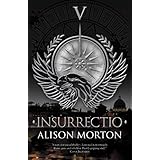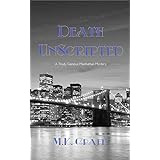I was fortunate enough to be given the opportunity to review Nancy Swing's debut novel and thoroughly enjoyed it, but her second novel, Child's Play, is even better. It's an incredibly powerful story of despair and redemption, and an unlikely friendship that alters the two protagonists' lives. Well worth reading.
Eden
Jones and Bethanne Swanson are no-account people, both in their own
eyes and in the estimation of the residents of Lewiston, West
Virginia, the small town in which they live.
Eden
is thirteen and lives with her mother and baby brother on a trailer
park. Since her father walked out on them, Eden has tried to help her
mother to keep their small family afloat by babysitting her young
brother every night during the school holidays so that her mother can
do shift work at the mill and afford a baby-sitter and work when Eden
is in school. Eden is plump and has little money and is teased by the
other children at her school. The bullying would be much worse if it
wasn’t for Ray-Jean Shackleford, who had befriended her. Ray-Jean
was one of the toughest, most street-wise kids in the town, a girl
who seemed afraid of nothing and broke into wealthy people’s houses
to snoop and sometimes to steal. Eden is a naïve but clever young
girl and, despite the sparseness of her opportunities, is interested
in learning, usually from the education channels on television. She
regards Ray-Jean as an adventurer, a person much braver than herself,
and never questions whether what she does is wrong.
Bethanne
is fifty, out-of-shape and dogged by her addiction to cigarettes and
alcohol. Her life is a mess, mainly because of her habit of choosing
predatory bullying men to live with. These men have physically and
emotionally abused her and left her destitute. Bethanne is living in
the house of her sister, Mary Margaret, an elegant, sophisticated
woman who is married to Winston Gravesly, a wealthy, prominent, West
Virginia lawyer. Mary Margaret has two grown up children, Lucinda and
Clay. Lucinda has always been hostile towards Bethanne but Clay is
still her friend. Bethanne is aware that the blackmail she used to
force her sister to take her in was wrong but she is too desperate
and damaged to truly regret it.
The
story opens at the point where Ray-Jean and Mary Margaret have just
died. They were together in Mary Margaret’s car, which drove into
the lake at the Gravesley’s summer house. Winston Gravesly used his
influence to have the deaths ruled as a tragic accident but any
explanations as to why Mary Margaret would have been transporting
Ray-Jean in her car are unconvincing. Both Eden and Bethanne are
convinced that there is something deeply suspicious about the deaths
and set out to discover the truth. At first they work separately but
soon they become aware of each other’s presence and join forces,
cautiously, not trusting one another, until suddenly they discover an
affection for each other and a respect that surprises them both.
However their investigation comes to the attention of some powerful
people who have dark secrets to hide and Eden and Bethanne realise
that their own lives are at risk.
Child’s
Play is Nancy Swings' second crime novel but the first set in
Lewiston, West Virginia. It is a compelling novel of American, small
town society and a fascinating study of the damage dark secrets can
do to an individual, a family and a community. At the same time,
there is a lot of gentle humour in the book, and two unusual but
thoroughly engaging protagonists in Eden and Bethanne. This is not
only an excellent crime novel but also a story of redemption as Eden
discovers her potential and Bethanne rediscovers her self-respect.
The book has dark themes sensitively handled but one of its chief
delights is the developing relationship between the two unlikely
friends. Child’s Play is an excellent read and one which I would
recommend.
Published
by Park Place Publications
ISBN:
978-1-943887-44-6




![Elementary Murder (A Lancashire Detective Mystery) by [Wright, AJ]](https://images-eu.ssl-images-amazon.com/images/I/517zogRNmjL._SY346_.jpg)


